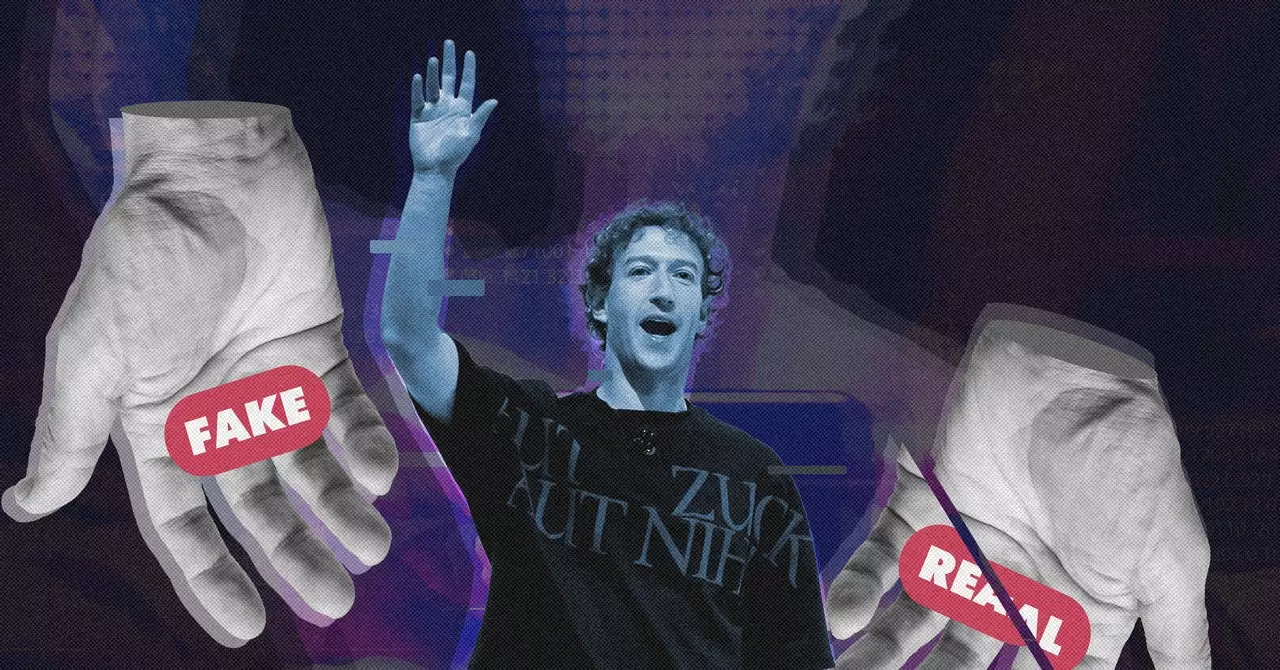In a shocking pivot, Meta Platforms, Inc. has decided to dismantle its fact-checking program in a bid to remain competitive in a political landscape reshaped by the anticipated second term of Donald Trump. This change, described as a 180-degree turnaround, points not only to the company’s strategic recalibrations but also raises profound concerns regarding the reliability of information circulating on its platforms—primarily Facebook and Instagram. Analysts and experts have voiced alarm over the consequences this decision could invoke, particularly for marginalized communities that are often the most vulnerable to misinformation.
At the core of Meta’s decision lies a belief that the company can trust its users to autonomously identify misinformation. Mark Zuckerberg, the company’s CEO, publicly announced that previous efforts to counter false narratives through professional fact-checking were at best misguided and at worst biased. He claimed these efforts inadvertently fostered distrust rather than building it. However, such assertions are met with skepticism from established fact-checking professionals like Laura Zommer, the former head of Chequeado and now leading Factchequeado. Zommer argues that, far from imposing censorship, fact-checkers provide critical context necessary for users to make informed decisions. Such fundamentally different perceptions of the role and effectiveness of fact-checkers highlight a growing chasm between corporate narratives and the realities of misinformation.
Zommer also points to the shortsightedness of dismantling a program that Meta previously lauded for its successes. The inconsistency in this narrative exposes a layer of political maneuvering that could undermine trust in democratic processes. Angie Drobnic Holan, director of the International Fact-Checking Network, also voiced her concerns regarding the detrimental effects of political pressure on fact-checking mechanisms, which could erode the important checks and balances that ensure public discourse remains credible.
Merely labeling fact-checkers as political pawns is not only reductive but dangerous, particularly for communities that are typically targeted by malign narratives. Zommer elucidates the potential ramifications for the Latino community in the U.S. amidst Trump’s impending inauguration. Historical data suggests that anti-immigrant rhetoric has been particularly damaging, using disinformation as a tool to stoke fears and garner votes. During Trump’s previous campaign, false claims about migrants proliferated, a troubling pattern that could repeat itself now that fact-checking initiatives are being curtailed.
The ever-evolving landscape of technology has ushered in new tactics of deception, with deepfake videos and audio only exacerbating the issue. The rise of these sophisticated maneuvers makes the need for credible information sources more critical than ever. However, by halting its fact-checking undertakings, Meta is significantly narrowing the avenues available for users to discern legitimate information from deliberately misleading narratives.
An even deeper concern extends to the future viability of fact-checking organizations, especially in regions where resources are limited, such as Latin America. According to Pablo Medina from the Latin American Center for Investigative Journalism, Meta’s decision could have cataclysmic effects on already vulnerable news ecosystems. The financial support that fact-checkers received from Meta was critical in maintaining their journalistic endeavors. Without this backing, many organizations risk financial collapse, raising fears of a widespread retreat from effective journalism.
Furthermore, the implications of this move reach beyond U.S. borders. In the face of increasingly volatile political landscapes in countries like Brazil, the dismantling of fact-checking structures could pave the way for unchallenged extremist narratives to take root. Perry Nalon from Aos Fatos highlights the coincidence of this move with a global far-right agenda, which often uses similar arguments to delegitimize responsible journalism.
The criticisms aimed at Meta suggest that this revocation of fact-checking capabilities is not merely about cost-cutting or corporate strategy; it is also deeply intertwined with issues of power, governance, and ethical responsibility in the digital age. Zommer rightly concludes that the evidence from prior political cycles lends credence to fears that misinformation will proliferate, particularly among communities already facing systemic challenges.
In light of these factors, the future of information integrity within Meta’s platforms appears grim. While users may be encouraged to self-regulate and discern factual content, the absence of established verification protocols significantly undermines this ideal. As stakeholders in society—journalists, legislators, and citizens alike—we must call for accountability and advocacy for robust fact-checking mechanisms essential for a healthy democracy. The choice to dismantle such systems could ultimately jeopardize not only the public’s trust in digital platforms but also the broader integrity of discourse crucial for democratic engagement. The challenge ahead will be formidable, but the pursuit of truth and transparency remains imperative for the future of informed citizenship.

